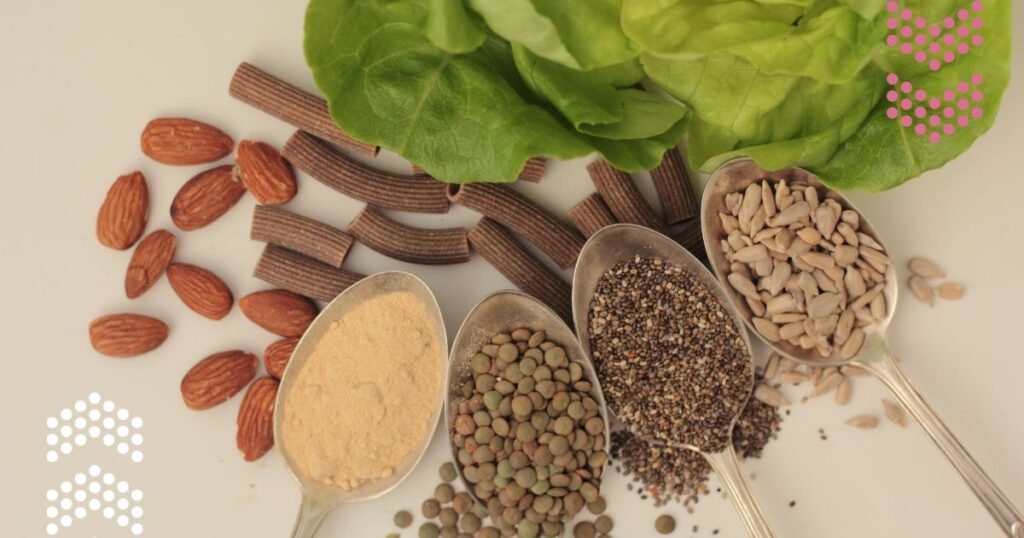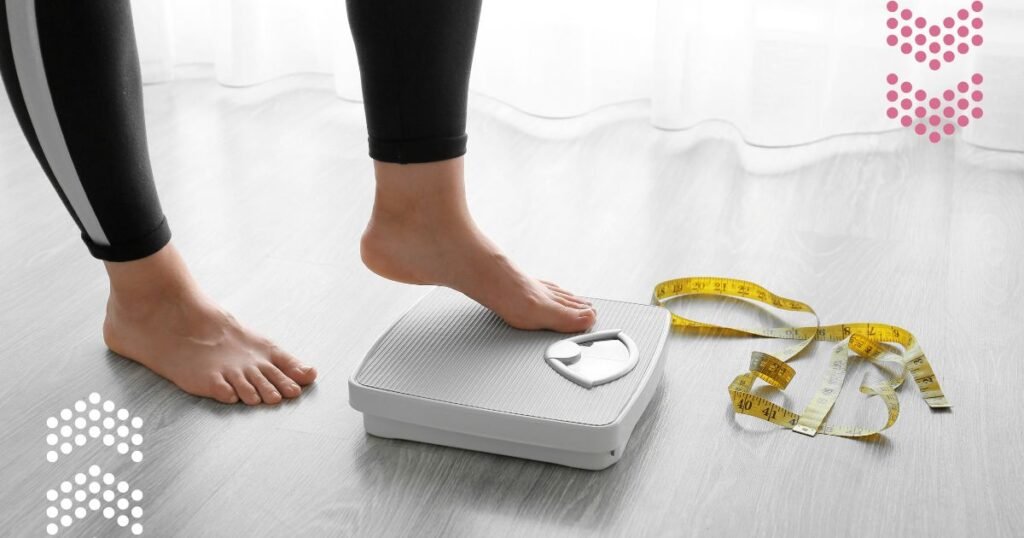The Role of Supplements in Managing PCOS Symptoms (Inositol, Omega-3s) for Women
Polycystic Ovary Syndrome (PCOS) is a complex hormonal disorder affecting millions of women worldwide. It can cause a variety of symptoms, including irregular menstrual cycles, weight gain, insulin resistance, and even fertility issues. Managing these symptoms often requires a multi-faceted approach, including lifestyle changes, medication, and supplements.
Among the most popular supplements used for PCOS management are Inositol and Omega-3s. These supplements offer several benefits that target the core issues faced by women with PCOS. In this article, we’ll explore how these supplements work and why they are increasingly being recommended for women with PCOS.
Why Supplements Are Important for PCOS Management in Women
PCOS is closely linked to hormonal and metabolic imbalances, making it difficult for women to manage their weight, insulin levels, and reproductive health. Although diet and exercise are essential in managing PCOS, supplements like Inositol and Omega-3s can enhance these efforts by addressing specific metabolic and hormonal disruptions.
For instance, insulin resistance is a common issue for women with PCOS. This condition causes the body to respond poorly to insulin, leading to high blood sugar levels and often resulting in weight gain and difficulty losing weight. Supplements such as Inositol help regulate insulin, making it easier for women to control their blood sugar levels and manage their weight.
Omega-3s, on the other hand, target inflammation and hormonal imbalances, two other significant factors in PCOS. By incorporating these supplements, women can improve their overall health and reduce the impact of PCOS on their daily lives.
Inositol: A Key Supplement for PCOS in Women
What is Inositol?
Inositol is a type of sugar naturally found in foods like fruits, beans, grains, and nuts. It is also produced by the body and is critical for many bodily functions. In women with PCOS, Inositol supplements are commonly used to regulate insulin sensitivity and improve reproductive health.
There are two main forms of Inositol that are especially beneficial for PCOS: Myo-Inositol and D-Chiro Inositol. These compounds work synergistically to improve metabolic and reproductive functions, making them popular choices for managing PCOS symptoms.
How Inositol Helps Women with PCOS
One of the key benefits of Inositol for women with PCOS is its ability to improve insulin sensitivity. Insulin resistance is a major issue for many women with PCOS, contributing to weight gain and difficulty losing weight. Inositol helps the body respond more effectively to insulin, stabilizing blood sugar levels and reducing the risk of type 2 diabetes.
Additionally, Inositol can help regulate menstrual cycles and promote ovulation in women with PCOS. Many women with PCOS struggle with irregular periods and fertility issues due to hormonal imbalances. Studies have shown that Inositol supplementation can improve ovulation rates and menstrual regularity, making it easier for women with PCOS to conceive.
Inositol has also been linked to improved mental health. Women with PCOS often experience higher rates of anxiety and depression. Inositol’s positive effects on insulin and hormonal balance can indirectly help reduce these mental health symptoms, making it an excellent addition to a comprehensive PCOS management plan.
Recommended Dosage and How to Take Inositol
For most women with PCOS, a daily dose of 2,000 to 4,000 mg of Myo-Inositol, often combined with D-Chiro Inositol, is recommended. It’s usually taken in divided doses throughout the day. Inositol is available in powder or capsule form and can be easily incorporated into a daily routine.
It’s important to consult a healthcare provider before starting any supplement regimen, especially if you are already taking medication for PCOS, such as Metformin, as the combination may require close monitoring.
Omega-3s: Essential Fats for PCOS Management in Women
What are Omega-3s?
Omega-3 fatty acids are essential fats that your body cannot produce on its own. They are crucial for brain health, inflammation control, and overall metabolic function. Omega-3s are commonly found in fatty fish like salmon and sardines, as well as plant-based sources like flaxseeds and chia seeds.
For women with PCOS, Omega-3 supplements can offer powerful anti-inflammatory benefits. Chronic inflammation is often a hidden driver of many PCOS symptoms, including insulin resistance, hormonal imbalances, and weight gain.
How Omega-3s Help Women with PCOS
One of the most significant benefits of Omega-3s for women with PCOS is their ability to reduce inflammation. Chronic inflammation is linked to many health issues, including insulin resistance and cardiovascular disease, both of which are concerns for women with PCOS. By reducing inflammation, Omega-3s can improve overall metabolic health and reduce the severity of PCOS symptoms.
In addition to their anti-inflammatory effects, Omega-3s can help lower androgen levels in women with PCOS. High levels of androgens (male hormones) are responsible for many of the visible symptoms of PCOS, such as acne, excess body hair, and male-pattern baldness. By reducing androgen levels, Omega-3s can help minimize these symptoms and improve a woman’s overall quality of life.
Omega-3 Supplements: What Women Should Know
When choosing an Omega-3 supplement, it’s important to look for high-quality products that contain both EPA and DHA, the two main types of Omega-3 fatty acids. Fish oil supplements are the most common source of Omega-3s, but algae-based supplements are also available for vegetarians and vegans.
Most experts recommend a daily dose of 1,000 to 3,000 mg of Omega-3s for women with PCOS. It’s also a good idea to speak with a healthcare provider before starting Omega-3 supplementation, particularly if you are on blood-thinning medications or have a bleeding disorder.
The Synergistic Benefits of Combining Inositol and Omega-3s for PCOS
While Inositol and Omega-3s are effective on their own, combining these supplements can offer even greater benefits for women with PCOS. Inositol improves insulin sensitivity, making it easier for the body to regulate blood sugar levels. Omega-3s, on the other hand, reduce inflammation and help balance hormones, creating a holistic approach to managing PCOS symptoms.
Women who use both Inositol and Omega-3s often report improvements in their overall health, including better mood, more regular menstrual cycles, and reduced insulin resistance. These supplements can work together to address the root causes of PCOS and help women achieve long-term symptom management.
Additional Supplements for PCOS Symptom Management in Women
In addition to Inositol and Omega-3s, other supplements can also be beneficial for managing PCOS symptoms. For example, Vitamin D is crucial for hormone regulation and has been shown to improve insulin sensitivity in women with PCOS. Magnesium and Zinc can also help reduce inflammation and improve hormonal balance.
Each of these supplements can play a unique role in managing PCOS symptoms. However, it’s essential to create a personalized supplement plan with the help of a healthcare provider to ensure you’re addressing your specific needs.
Consulting with Healthcare Providers Before Starting Supplements
While supplements offer significant benefits, they should not be taken without consulting a healthcare provider, especially if you’re taking medication for PCOS. Some supplements can interact with medications, so it’s crucial to get professional advice to avoid any adverse effects.
Your healthcare provider can also help monitor your progress and adjust your supplement plan as needed, ensuring that you achieve the best results while managing your PCOS symptoms effectively.
Lifestyle Changes to Complement Supplement Use for PCOS in Women
Supplements alone are not a cure-all for PCOS, but they can be a powerful addition to a healthy lifestyle. A balanced diet rich in whole foods, regular physical activity, and stress management techniques are essential components of PCOS management. Supplements like Inositol and Omega-3s work best when combined with these healthy habits.
For example, women who engage in regular exercise may see improved insulin sensitivity and better weight management. Stress management practices such as yoga and meditation can also reduce cortisol levels, helping to balance hormones and reduce inflammation.
Conclusion: Supplements as Part of a Holistic Approach to PCOS Management for Women
Inositol and Omega-3s offer numerous benefits for women with PCOS, from improving insulin sensitivity to reducing inflammation and balancing hormones. However, these supplements are most effective when used alongside a healthy lifestyle that includes a balanced diet, regular exercise, and stress management.
If you’re looking for ways to better manage PCOS, it’s worth exploring weight loss strategies tailored to women to further complement your supplement use. Combining the right supplements with healthy lifestyle habits can help you manage your PCOS symptoms effectively and improve your overall quality of life.
To learn more about managing PCOS, browse our ShapioX website, where we offer a wide range of resources, including recipes, fitness guides, and calculators designed specifically for women’s health.
FAQs: Common Questions Women Have About PCOS and Supplements
How long does it take for Inositol to show results in women with PCOS?
Many women notice improvements within 3-6 months of regular use, especially in terms of ovulation and menstrual cycle regulation. However, results may vary depending on individual factors.
Can Omega-3s be taken alongside other PCOS medications?
Yes, Omega-3s are generally safe to take with medications like Metformin. However, it’s best to consult your healthcare provider to ensure there are no interactions with your specific medications.
Are there any side effects from taking these supplements for PCOS?
Inositol and Omega-3s are considered safe for most women when taken in recommended dosages. Some women may experience mild side effects such as bloating or nausea, but these are typically rare.
Can women who don’t have PCOS take Inositol and Omega-3s?
Yes, these supplements can be beneficial for women without PCOS as well, offering benefits like improved metabolic health, reduced inflammation, and better overall hormone regulation.
What lifestyle changes should accompany supplements for the best results in managing PCOS?
Women should focus on eating a balanced diet rich in whole foods, engaging in regular exercise, managing stress, and ensuring adequate sleep. These healthy habits complement the effects of supplements like Inositol and Omega-3s.
For more information about managing PCOS and to explore other women’s health resources, visit our ShapioX website to browse our recipes, fitness shop, and weight loss calculators tailored specifically for women.


